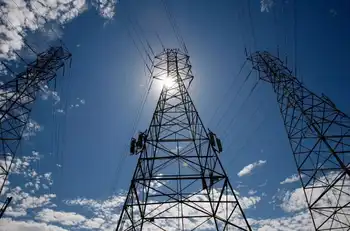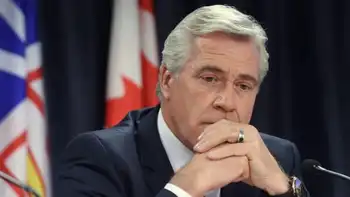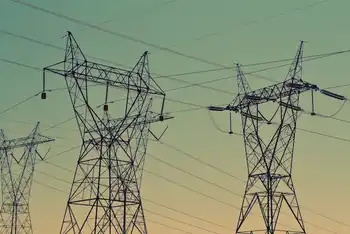Going green costs a lot of green
By Windsor Star
Substation Relay Protection Training
Our customized live online or in‑person group training can be delivered to your staff at your location.

- Live Online
- 12 hours Instructor-led
- Group Training Available
An analysis by The Windsor Star, from numbers provided by local utility companies and the City of Windsor, shows that water costs are 94 per cent higher than in 2006, sewage bills are 52 per cent higher, and electricity rates are 12.5 per cent higher. Gas, however, has dropped 28 per cent from 2006.
The rising costs are largely a result of going more green, with the idea of bolstering the environment and cutting expenses in the future.
RBC released a report saying that homeownership costs relative to salary continue to climb in Canada, based largely on home prices and mortgage rates, and based partly on utilities.
"It's becoming costlier to own a home as a percentage of a typical household's median income," said Robert Hogue, Toronto-based senior economist for RBC, who wrote the Housing Trends and Affordability report.
"In terms of home ownership costs, we're above the long-term average, but still far from the extreme levels of the early 1990s."
Hogue said the recent introduction of the HST has added to the cost of home ownership, despite the fact that prices have actually fallen a little in the last couple of quarters.
Hogue predicts the cost of owning a home, relative to income, will continue growing before it begins dropping again.
Ron Graham, a retiree who lives with his wife Linda in a nicely maintained semi-detached home on Windsor's east side, does what he can to cut costs.
He turns off lights, scales back water use, and collects rainwater in a barrel to use for lawn care.
But he says being green doesn't actually save him much on his water bill — since it is comprised of so many fixed costs.
"It disturbs me," Graham said. "We're out there trying to conserve water the best we can, and the bills continue to rise."
Windsor residents, however, don't face the steep home prices found in much of the rest of Canada.
In fact, we're a relative bargain.
But local homebuyers do have the same mortgage rates.
Plus, with the worst unemployment in the country — Windsor's jobless rate has dropped from 14.6 per cent in August 2009, but still stands at 11.1 per cent — even moderate household expense increases can cut to the quick.
"Over the last number of years, we have seen more and more people trying to determine whether they are going to eat or pay their utilities," said Shelley Gilbert, co-ordinator of social work services for Legal Assistance of Windsor, which serves low-income families.
"There just hasn't been an increase in people's income to match the incredible increase in costs associated with renting or owning a home.
"We've already had people coming in this fall, saying they can't manage the utility costs."
Ontario NDP Leader Andrea Horwath spoke in the legislature, calling for an HST exemption on hydro bills. To support her tax-break proposal, she quoted an email from Gail Murphy of Windsor, who said because of the HST, she has to pay $150 extra a month for household expenses.
Also speaking in the legislature, Ontario Progressive Conservative Leader Tim Hudak blasted Premier Dalton McGuinty over the introduction of smart meters. Hudack said the plan must be stopped and Ontarians given the choice of opting out of time-of-billing arrangements.
Still, Union Gas costs have actually dipped in the last couple of years, thanks partly to Canadian-developed technology that allows companies to collect gas from shale rock, opening a new resource.
Windsor water costs have been stable for four years, while sewage bills have remained the same for three years — after hefty price tag jumps.
Onorio Colucci, City of Windsor CFO and treasurer, said sewer charges last went up three years ago. And he said the extra costs are generally to cover the $110-million upgrade of the Lou Romano treatment plant.
Current sewer bills break down to 40 per cent for basement flooding projects, 37 per cent for pollution control plants, 13 per cent for sewer maintenance and 10 per cent for administration.
"Nobody likes to pay fees," Colucci said.
"Unfortunately, we have miles and miles of sewers and they need to be replaced.
"And we have regulations on the quality of water that we can release into the Detroit River. These standards are becoming more and more stringent."
The same principle applies for electricity rates, said Michael Duben, Enwin vice-president of customer relations.
Someone must pay to create alternative energy through Hydro One.
Nevertheless, the portion of a typical Windsor customer's bill for Enwin — which simply distributes electricity that the government generates — has actually dropped six per cent in the last five years.
Enwin's annual dividend to its sole shareholder, the City of Windsor, has gone up, thanks to good management, Duben said, from $1.7 million in 2005 to $4 million last year.
The cost to produce electricity, however, has also climbed.
"I suspect the cost of generating and transmitting electricity will continue to go up, because all the alternative energy initiatives cost money," Duben said. "That's going to be paid for by ratepayers."











